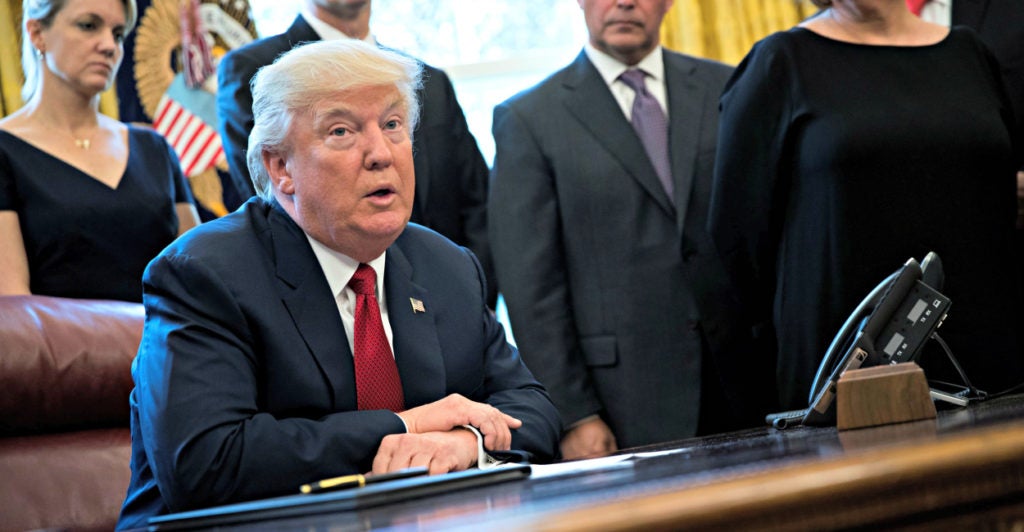The Trump administration’s investigation of steel imports as a possible national security concern is the latest in a line of aggressive actions designed to boost the economy. The target of the so-called Section 232 probe is, in large part, imports into the U.S. from China.
In recent testimony before the House Ways and Means Committee, the U.S. trade representative, Robert Lighthizer, argued that “we have to take on China when they do things that are inconsistent with our values.”
Rather than affecting China, however, imposing tariffs on steel imports is likely to hurt some of America’s closest allies.
While it’s true that China is responsible for about half of global steel production, very little of that steel makes its way to the U.S. As it turns out, many of the top steel sources are our allies, not adversaries.
Canada, one of America’s closest and longest allies, is the top supplier, providing 17 percent of U.S. steel imports. Other leading countries are South Korea, Japan, and Taiwan—all valuable international partners.
In 2016, 81 percent of U.S. steel imports came from 10 countries, and China wasn’t one of them. Overall, China was responsible for less than 3 percent of our steel imports.
In any case, little if any evidence exists that limiting steel imports would improve national security. In fact, the opposite might be true, as market restrictions raise costs that make it more expensive for the Pentagon to buy the materials it needs.
>>> Read the full report: “Steel Imports Do Not Threaten National Security”
In addition, tariffs could result in trade retaliation from America’s allies. As Rep. Lynn Jenkins, R-Kan., warned at the same hearing: “Using national security as a basis for trade restrictions … could backfire if other countries do the same to us. In particular, food security for many countries is a vital component of national security.”
Sure enough, European officials have stated that they would consider responding to U.S. steel restrictions with tariffs of their own, and that U.S. agriculture would be a potential target.
Kansas farmers help to make the U.S. one of the world’s top wheat exporters, responsible for about 20 percent of global exports. Retaliatory measures would severely harm U.S. agriculture producers that export food around the world, while likely failing to address steel production in China.
If President Donald Trump wants to strengthen national security, he should start by encouraging stronger trade relationships with America’s allies, rather than weakening them to counter a nonexistent threat.
